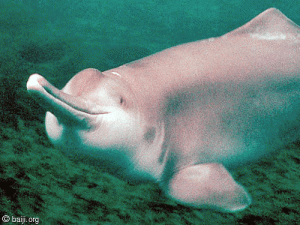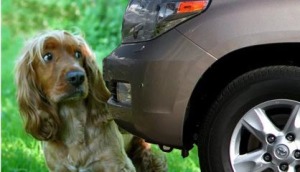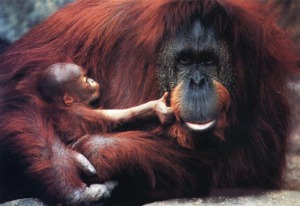Yeah… we love animals! We love animals so much we chop them up on an industrial scale stick them in tins full of gravy and then feed them to other animals we call ‘pets’. In 2007 sales of food for cats and dogs alone amounted to US$ 45.12 billion . Ironically this is almost the exact cost as an estimate for conserving total global biodiversity, $42 billion (UNEP 1992). The hot spot approach could make total biodiversity conservation even cheaper.
Conserving biodiversity is as urgent and important as stopping climate change; we are living through the 6th great planetary extinction event. This means that species are being lost at at least 100 times the natural rate. An estimated 34,000 plant and 5,200 animal species face extinction. The last such loss of species was 65 million years ago and saw the departure of the dinosaurs. Recently, the Yangtze River Dolphin was announced as gone forever. Losing such characterful species is tragic but more significantly ecologists have compared the loss of species to rivets falling off an aeroplane. Losing 1 or 2 rivets isn’t a problem but lose too many… and you’re up shit creak without a paddle… and there are no friendly dolphins to save you either.
The climate impact of pets is enormous. An article in New Scientist reports that A typical medium sized dog has an ecological footprint more than twice that of a 4.6-litre Toyota Land Cruiser. There are many other dark ironies about our peculiar love for certain species. We really love cats, 7.7 million felines live in the UK even though they decimate the local populations of small mammals; things we don’t like e.g. the endangered field mouse, voles and shrews. Scientists estimate that each year in the US domestic cats kill hundreds of millions of birds, and more than a billion small mammals, such as rabbits, squirrels, and chipmunks .
We also love birds. The RSPB has over 1 million members (including 150,000 youth members), making it the largest wildlife conservation charity in Europe.[3] Bird lovers like to feed birds in their garden. Done responsibly this can boost biodiversity. Unfortunately, at the commercial scale this is likely to be boosting UK biodiversity whilst depleting it elsewhere. Most bird seeds sold in shops will contain imported nuts. We may not know exactly where or how these nuts were grown but most likely it was in countries with weaker agricultural and environmental legislation then the EU. The mass production and consumption of these products may decimate biodiversity in the producer countries.
Peanuts are found in most bird seed mixes. Brazil is 1 of the 5 major producers/exporter countries (United States, Argentina, Sudan, Senegal) accounting for 71% of total world exports. It is well reported that agricultural growth in Brazil is largely responsible for the loss of the Amazon Rainforest, one of the most biodiverse places on the planet. This means that sweet old animal loving Mrs Blogs is effectively trading the Amazon for a few blue tits pecking outside her window sill…. Bad trade!
All animals are part of the global eco-system that we conflate to call ‘nature’. If we love animals the most important thing to do is to ensure our behaviour and choices support, conserve and protect nature as a whole (aka Gaia). In general, supporting nature means consuming less. This is especially true of imported products which may have a huge environmental impact and meat which requires much land to produce. If some of the energy resources and love currently channelled by UK citizens into the pet industry were diverted into nature conservation we could save a large number of species from going extinct.
The love that we feel for a pet can be an egocentric love. We may desire the companionship, adoration, and unquestioning love that the pet-human relationship establishes. This love is focused down onto an individual creature onto which we project many of our emotional needs. This love for an individual animal can be broadened and expanded to incorporate all of the life on the planet. We gain many well being benefits from expanding our pet-love relationship to a wider love and respect for all nature . The forests, birds in the sky, fish in the sea and all wild creatures can be our friends too.
Indigenous tribes attribute personalities to wild creatures which are pivotal parts of their world view. We can too. Clearly global ecosystems benefit when we can attribute a personality to the whole biosphere. Gaia, The Great Mother / Great Mystery is dying while we sit divorced from nature in our heated cubeoids stroking our well fed pets. Let’s open our eyes and see the whole world is full of ‘pets’ and we don’t need to own them to love them.






